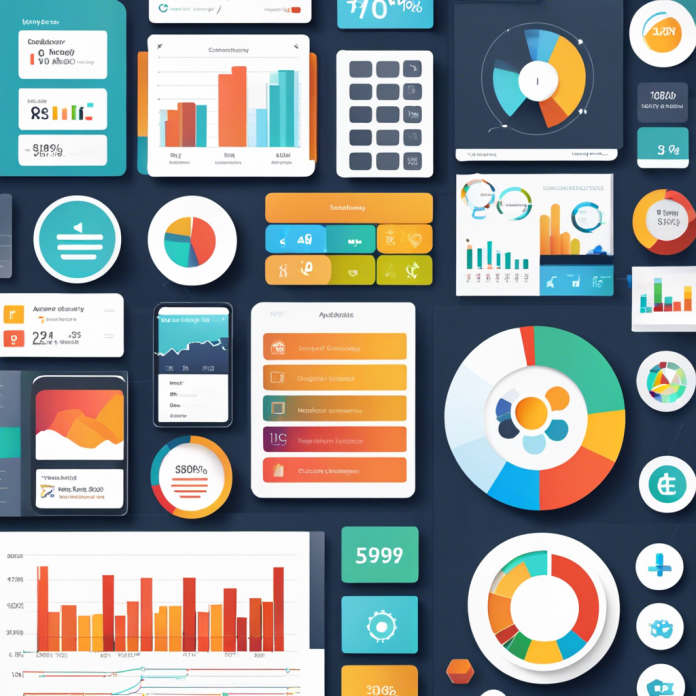In today’s fast-paced and data-driven business landscape, staying ahead of the competition requires informed decision-making. This is where Business Intelligence (BI) analytics software plays a pivotal role. Businesses are increasingly relying on these advanced tools to extract valuable insights from their data, enabling them to make strategic decisions that drive growth and innovation.
Understanding Business Intelligence Analytics Software
Business Intelligence Analytics Software refers to a set of tools and technologies that transform raw data into meaningful and actionable insights. These solutions help businesses collect, process, and analyze large volumes of data from various sources, providing a comprehensive view of their operations. The primary goal is to facilitate informed decision-making, enhance operational efficiency, and gain a competitive edge in the market.
Key Features of Business Intelligence Analytics Software
- Data Integration: BI analytics software aggregates data from diverse sources, including internal databases, external APIs, and third-party applications. This integration ensures a holistic view of the business environment.
- Data Visualization: Visualization is a crucial aspect of BI software, as it translates complex data sets into easy-to-understand charts, graphs, and dashboards. This visual representation aids decision-makers in quickly grasping trends and patterns.
- Predictive Analytics: Advanced BI tools often incorporate predictive analytics, using historical data to forecast future trends. This capability allows businesses to proactively plan and respond to changing market dynamics.
- Ad Hoc Reporting: BI software enables users to create customized reports on-the-fly, providing flexibility in data exploration. This empowers users to delve deeper into specific areas of interest without relying on pre-built reports.
- Real-time Analytics: The ability to analyze data in real-time is crucial for businesses operating in dynamic environments. BI analytics software allows users to monitor key metrics as events unfold, facilitating timely decision-making.
Benefits of Business Intelligence Analytics Software
- Informed Decision-Making: BI analytics software empowers decision-makers with accurate and timely insights, reducing the reliance on gut feelings or assumptions.
- Enhanced Operational Efficiency: By streamlining data collection and analysis processes, BI software helps organizations identify inefficiencies and optimize operations for increased productivity.
- Improved Customer Insights: Understanding customer behavior is vital for business success. BI tools enable organizations to analyze customer data, preferences, and feedback, allowing for targeted marketing and personalized customer experiences.
- Competitive Advantage: Leveraging BI analytics provides a competitive edge by enabling businesses to adapt quickly to market changes, identify emerging trends, and capitalize on opportunities.
- Cost Savings: BI analytics software helps organizations identify cost-saving opportunities by highlighting areas where resources can be optimized and inefficiencies eliminated.
Implementing Business Intelligence Analytics Software
- Define Objectives: Clearly outline the business objectives and the specific insights needed. This ensures that the BI software aligns with organizational goals.
- Choose the Right Solution: Assess the available BI analytics software options based on features, scalability, ease of use, and compatibility with existing systems.
- Data Quality Management: Ensure data accuracy and reliability by implementing robust data quality management practices. Garbage in, garbage out – accurate insights rely on accurate data.
- User Training: Provide comprehensive training to users to maximize the benefits of BI analytics software. This includes understanding the software’s features and capabilities, as well as interpreting the generated insights.
- Continuous Evaluation and Improvement: Regularly assess the effectiveness of the BI solution and make necessary adjustments. Business environments evolve, and the BI software should adapt accordingly.
Conclusion
In conclusion, Business Intelligence Analytics Software is a game-changer for businesses seeking to thrive in today’s data-driven landscape. By harnessing the power of data, organizations can make informed decisions, enhance operational efficiency, and gain a competitive edge. As technology continues to advance, the role of BI analytics software will only become more critical in shaping the future of successful enterprises. Invest wisely in a robust BI solution, and unlock the full potential of your business data.
